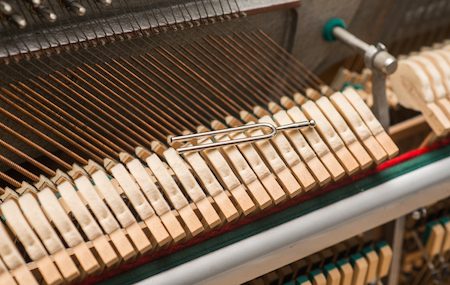In many industries, standards and codes exist to ensure technicians in the field meet certain requirements before they can go into business. Plumbers, HVAC, electricians, even mechanics all have standards to protect consumers from unscrupulous behavior.
Not in the piano restoration industry. If you have the desire to work in the piano restoration industry, all you have to do is open up a business according to state laws, and you can begin marketing your services to the general public immediately.
There is the Piano Technicians Guild, which is a source of expertise within the piano service and technology fields. To join, you fill out the application and pay a fee. Testing is only required if you choose to earn the Registered Piano Technician accreditation. This means many who choose to use the Piano Technicians Guild logo can do so simply by writing a check.
Hobbyists often decide to move into the piano restoration industry because it can be very lucrative. Depending on the piano project, it can be worth tens of thousands of dollars to rebuild a piano.
There are over 12,000 moving parts on a piano, all working together to create sound. That’s a lot of parts!
Now imagine a less than scrupulous piano rebuilder does not have the exact part he’s looking for. Will he make substitutions?
How will you ever know?
Like any industry, if you want something done the right way, it’s important to do your research before you sign on the dotted line.
Ask questions before you hire a refurbisher. Do a little research online to determine their reputation. Only hire them after you’re comfortable with their skills.
It’s the only way you’ll ensure quality throughout the project.


